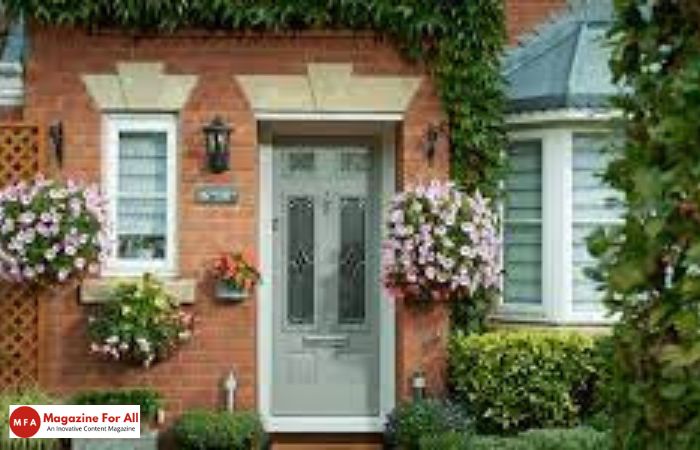Noise pollution is a major concern for homeowners in the GTA. Did you know that soundproofing your entry doors in Toronto greatly reduces noise pollution?
In the following article, find helpful hints for soundproofing entry doors Toronto. Installing new, energy-efficient doors is the best defence against noise pollution, of course. However, these tips will make your existing entry doors more soundproof.
Why Soundproofing Entry Doors Toronto Is Beneficial
Noise pollution directly affects both our physical and mental well-being. These include increased stress levels, sleep issues, hearing problems, metabolic health, and even cardiovascular issues. Below, we discuss how exterior doors are related to the level of noise pollution in the home
Sleep disturbances from noise pollution have a direct impact on both physical and mental health. These include higher levels of stress, mood swings, directly impact quality of life, and even emotional distress.
As well it has also been proven that children who have experienced ongoing noise pollution have issues with speech, reading comprehension, and long-term memory.
How Entry Doors Toronto Affect Noise Pollution
Both windows and entry doors in Toronto are one of how noise pollution enters your home. Keep in mind that both doors and windows take up a great deal of space in your home, including ceilings and walls. Hence, poor insulated and sealed doors and windows allow outside sounds to infiltrate your home.
Modern doors and windows are designed to prevent noise pollution. As well, they work to improve the level of energy efficiency in your home. However, there are some steps that you can take to soundproof your existing exterior doors, such as sealing the gap underneath any exterior doors in your home.
Following, we discuss ways to soundproof your entry doors in Toronto.
Ways To Soundproof Exterior Doors in Toronto
One of how sound moves throughout your home in the GTA is via vibrations. An example is when someone knocks on a wooden door, the particles inside the door vibrate, causing sound waves. These same sound waves travel not only through wood doors but other materials as well. However, some materials, such as steel, are more dense and thus help prevent noise pollution. Hence, the best options for soundproof exterior doors are to increase the thickness of said doors or to decrease the gaps to prevent noise pollution.
Closing the gaps to prevent noise pollution
Here are three ways to soundproof your doors by closing any gaps.
- Soundproof Weatherstripping
A surefire way to soundproof entry doors in Toronto is to install soundproof weatherstripping. This is applied around the door frame to muffle outside noises and prevent sound waves through the door itself.
- Door Sweep
Installing a door sweep greatly reduces noise pollution. It fits into the base of your entry door, thus sealing any gaps. This prevents both sound waves and air drafts from entering your home. To protect your door from wear and tear from the door sweep, add a decorative door mat or rug by your front door.
- Acoustic Chalk
Applying acoustic chalk around the door frame helps to create a sound barrier. This non-hardening sealant is designed to help decrease sound waves. It also helps prevent both air and water leaks, thus reducing damage to the door as well as your home.
If you don’t wish to use acoustic chalk, expanding foam works as well and is just as cost-effective.
Increasing Door Density
The thicker and heavier the door, the more soundproof. Standard doors often have hallowed cores. While this helps with ease of operation, it also makes them less soundproof.
The best type of doors for noise reduction are steel or wood doors. Both are durable and last for many years with proper care and upkeep. Both offer many aesthetically appealing style options as well.
Before you soundproof your door, be sure to check with the fire department in your location to see if it complies with their guidelines. As some of these options increase the weight of the door or interfere with the way it opens or closes, it may prevent a fire hazard. Also, ensure that the soundproofing materials you are using do not interfere with smoke and carbon monoxide detectors.
Related Post: Year-Round Enjoyment: How to Make the Most of Your Outdoor Space

































































